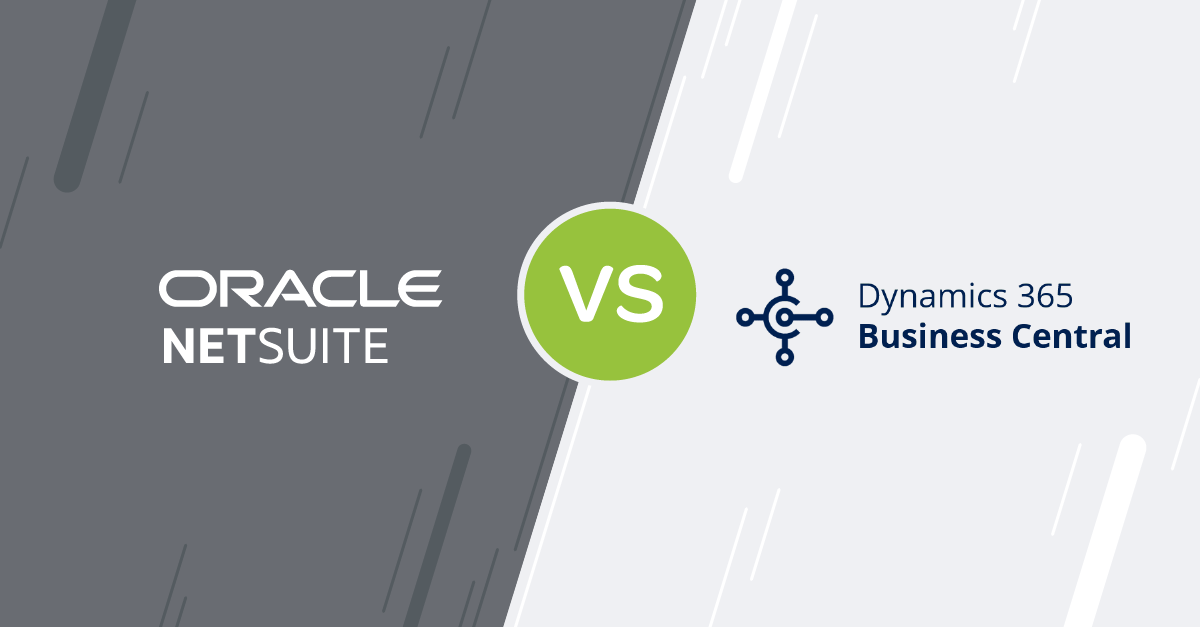Blog
Share this
How to Choose the Right ERP Partner

by Carly Caines on July 09, 2025
Choosing an ERP system is a big deal—but choosing the right ERP partner? That’s the real game-changer.
If you’re a mid-size business leader navigating this journey, you’ve probably realized that ERP isn’t just about software. It’s about transforming the way your business operates—from inventory and production to reporting and customer service. And to do that successfully, you need more than just a tech vendor. You need a true partner who understands your business, listens to your needs, and guides you through change with clarity and confidence.
But let’s be honest, vetting ERP partners can feel overwhelming. Every provider promises results and the demos look great. But how do you know that they’ll deliver on the dream?
Here’s the good news: You don’t need to be an ERP expert to make the right choice. You just need to know what to look for (and what to avoid). In this guide, we’ll break down exactly how to choose an ERP partner that fits your business—not just your budget.
Ready to get clear on what matters most?
Why the right ERP partner matters
Let’s say you’ve found a solid ERP solution—it checks all the boxes, has good reviews and fits your budget. You’re golden, right?
Not quite.
The truth is, your ERP success hinges just as much on your implementation partner as it does on the software itself. Here’s why.
Software alone doesn’t drive success
ERP software is a tool. A powerful one, yes—but tools only work when they’re used the right way. Your partner determines how that tool gets integrated into your business, how it supports your team and how quickly you see ROI (return on investment). A great ERP vendor understands this and goes beyond just “installing software.”
A good partner makes the complex feel simple
The right ERP partner will simplify what could otherwise be a complicated and frustrating process. They’ll guide you through each step—from discovery to go-live—helping you improve processes, manage change and build confidence among your team.
When that happens, user adoption improves. Your systems align with your workflows. And the investment starts paying off faster.
A bad partner? That’s a different story
We’ve seen it too often—projects that go off the rails because the partner didn’t listen, didn’t understand the business or didn’t follow through after go-live. The result? Blown budgets. Missed timelines. And a serious hit to internal trust and morale.
ERP implementation isn’t just a tech project—it’s a business transformation. And the wrong partner can derail it before it even starts
What should you look for in an ERP partner?
So, how do you tell the difference between a good ERP partner and one that might not be the right fit? These are the qualities that truly make a difference—especially for small to mid-size companies in manufacturing, wholesale distribution or industrial services.

1. Business process expertise (not just tech skills)
A strong ERP partner won’t just configure software—they’ll take the time to understand how your business works. That includes your day-to-day processes, pain points and growth goals. They should be able to ask smart questions, spot inefficiencies and offer ways to streamline operations before jumping into system setup.
This is what separates a “partner” from a “vendor.”
2. Process consulting and optimization
ERP is a chance to improve—not just digitize—your processes. Your partner should help you rethink how things get done, recommend best practices and guide you through organizational change. That level of support makes adoption easier and leads to better long-term outcomes.
If they’re just there to “get the system live,” that’s a red flag.
3. Strategic use of customization
Customization isn’t always bad. But too much of it can make your system harder to maintain and upgrade. The right ERP partner will advocate for simplicity and stability, customizing only when it adds real value to your business.
They’ll also explain when standard workflows make more sense—and why.
4. Relevant industry experience
ERP isn’t one-size-fits-all. Look for a partner who knows your industry and understands the unique challenges that come with it—whether it’s production bottlenecks, inventory accuracy, or field service complexity.
Experience in manufacturing, wholesale or industrial services means they’re better equipped to deliver a solution that actually works for your world.
Questions to ask during ERP discovery and demos
When you're evaluating ERP partners, the discovery call and demo phase is where you get past the sales pitch and start uncovering whether they’re the right fit. The goal here isn’t just to understand the software—it’s to understand how the partner works, supports and collaborates with your team.
Here are key questions that will help you get real insights:

1. How do you approach process improvement during implementation?
You want a partner who’s focused on making your business better—not just mapping old processes onto new software. Their answer should highlight how they guide process change, identify improvements and balance best practices with your team’s needs.
2. Who will I work with post-implementation?
It’s common for businesses to feel like they’re passed off to a support queue after go-live. Ask about team continuity—will the people guiding you through implementation still be there when you need help a year from now?
3. Where are your consultants based?
You’ll want to know if you’re working with local experts or offshore resources. This matters for communication, availability and cultural fit—especially if you value in-person sessions or same-time-zone support.
4. How do you handle customizations or integrations?
Listen for a balanced approach. A good partner won’t shy away from custom work, but they’ll help you avoid unnecessary complexity. Ask how they determine when to customize versus stick to out-of-the-box functionality.
5. What’s your typical customer relationship like?
Is it a one-and-done transaction, or an ongoing partnership? The best ERP vendors see themselves as an extension of your team—someone you can turn to for support, strategy and optimization as your business grows.
These questions can reveal a lot about how a partner will treat you—not just during the sales cycle, but over the long haul.
Common red flags to watch for
Not all ERP partners are created equal. Some sound great on paper but don’t deliver when it counts. To avoid disappointment (and costly project setbacks), watch for these red flags during your evaluation process.
Overpromising functionality during the demo
If it feels too good to be true—it probably is. Some partners tailor their demo to check every box, even if the functionality shown isn’t available out-of-the-box or feasible for your budget.
🚩 Red flag: Vague answers when you ask “Can we actually do this in our live system?”
What to do: Ask for real-world examples and confirm which features are included versus custom-built.
Outsourced or rotating teams with little continuity
Working with an outsourced or rotating team often means repeating your business needs over and over. That disconnect can lead to misunderstandings and poor implementation outcomes.
🚩 Red flag: No clarity on who will be managing your project or providing support post-go-live.
What to do: Request bios and roles of key team members, and ask if they’ll be with you from start to finish.
Focused only on tech—not how your people will use it
ERP isn’t just a system. It’s a new way of working. Partners who focus only on functionality and ignore the human side often miss the mark on adoption and long-term success.
🚩 Red flag: Little discussion about training, change management or process fit.
What to do: Ask about their approach to onboarding, user training and stakeholder engagement.
Lack of clarity on post-go-live support
Go-live is just the beginning. If your partner can’t clearly explain what happens after, you might be left without the help you need.
🚩 Red flag: No structured support plan, or support that’s reactive only.
What to do: Ask what happens in the first 90 days post-go-live—and how they help clients long-term.
Pushy sales tactics or unclear pricing
A trustworthy partner will take the time to understand your business and guide you through the process. If you feel rushed or pressured, it’s a sign they’re more focused on closing the deal than your long-term success.
🚩 Red flag: Vague pricing, discounts with deadlines, or “act now” pressure.
What to do: Insist on clear, detailed pricing and take your time evaluating.
Partner fit: Technical skills vs. cultural alignment
You need your ERP partner to be technically strong. But that's not the whole story.
A good cultural fit can be just as important—especially when you’re trusting someone to lead a business-critical project and support your team through big changes.
Skills can be matched—trust is earned
Let’s be real: There are lots of partners who can technically implement your ERP. What sets the great ones apart is how they work with you.
Ask yourself:
- Do they take time to listen?
- Do they ask the right questions?
- Do they challenge your thinking in a respectful, constructive way?
Those are the signals of a partner who’s invested in your success—not just their own timeline.
Look for collaborative communication
You want someone who communicates clearly and consistently. That means setting expectations, flagging risks early, and keeping you in the loop throughout the project. The best ERP partners aren’t afraid to have tough conversations when needed—and they make you feel like part of the team.
A shared mindset makes implementation smoother
Your ERP project will have ups and downs. The right partner brings a problem-solving attitude, a willingness to adapt and a sense of partnership. That mindset builds resilience and keeps the project moving forward—especially when challenges come up (and they will).
Final thoughts: Choosing a partner for a long-haul
Here’s what to keep in mind as you make your final decision.
ERP is a journey, not a destination
You’ll evolve. Your business will grow. And your ERP system needs to grow with you. The right partner isn’t just there for go-live. They’re there to help you adjust, improve and optimize as your needs change
Think:
- Ongoing process optimization
- Support for future integrations or upgrades
- Strategic advice as you scale
Choose someone who walks alongside you
The best ERP partners act as a guide, not a gatekeeper. They help your team build confidence, adapt to change and stay focused on what really matters—getting value from the system.
That means:
- Transparent communication
- Proactive problem-solving
- A genuine commitment to your goals
In short, you want someone who’s in it for the long haul. Someone who doesn't just sell you a system—but helps you use it to build a stronger business.
At ProjectLine Solutions, we focus on the human side of ERP. We take time to understand your business, guide your team with empathy, and help you build a solution that works—not just on day one, but for the long haul.
Share this
Stay in the Know!
Join other SMEs who receive our monthly ERP insights, tips and best practices.
You may also like

ERP Funding for Canadian Businesses

Should You Work with a NetSuite Implementation Partner or Go Direct?


